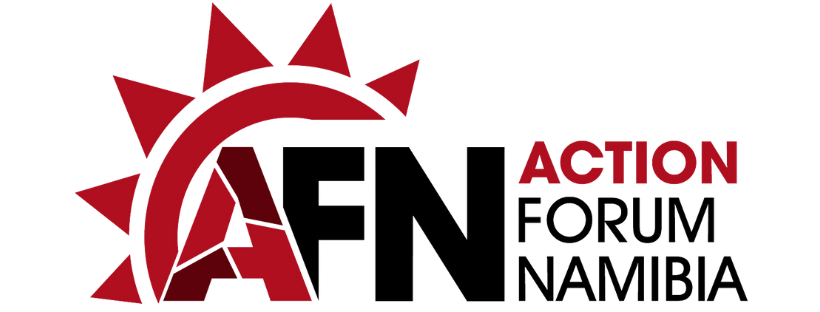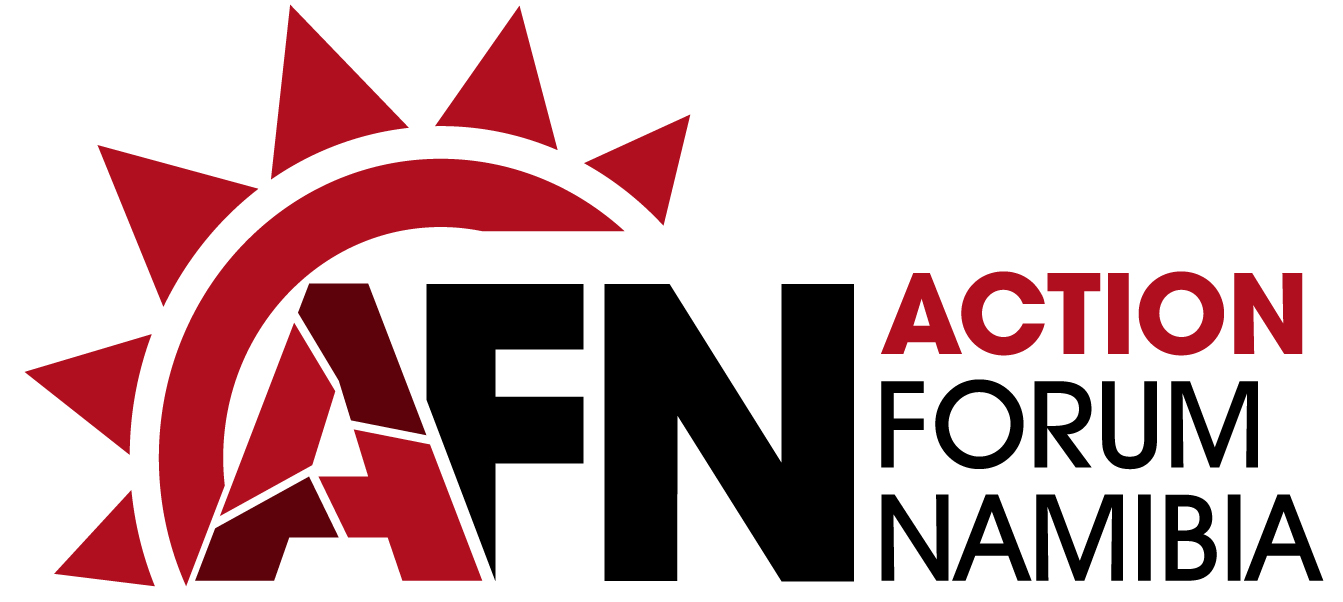Holding Government
Accountable to the People
AFN is a voluntary, non-profit civil rights movement for all Namibians irrespective of origin, appearance, culture, religion or sexual orientation.

OUR MAIN OBJECTIVES ARE TO:

COMMUNICATE
To continuously inform, in a simple and understandable manner, our members and the general public about government policies and practices.

MONITOR
To, on behalf of the general public, monitor government polices and practices and assess to what extend they conform with the Constitution.

INVESTIGATE
To identify issues and concerns in terms of legislation, policies, procedures and practices. Provide possible solutions to amicably address the concerns

ACT
To take appropriate actions that include:
•Media
•Address Parliament •Address City/town councils
•Direct with GRN
•Public group discussions International

COMMUNICATE
To continuously inform, in a simple and understandable manner, our members and the general public about government policies and practices.

MONITOR
To, on behalf of the general public, monitor government polices and practices and assess to what extend they conform with the Constitution.

INVESTIGATE
To identify issues and concerns in terms of legislation, policies, procedures and practices. Provide possible solutions to amicably address the concerns

ACT
To take appropriate actions that include:
•Media
•Address Parliament •Address City/town councils
•Direct with GRN
•Public group discussions International
THE NAMIBIAN DREAM

AFN Promotes the Namibian Dream of:
1. A Decent Job
2. Proper & Affordable Education for all
3. Affordable & Quality Health Care for all
4. The right to a Dignified Retirement
5. Protected against criminals, economic exploiters and public scams
Dr Frikkie Engelbrecht Afrigting - Kletskompas 6 September 2023
Dr Frikkie Engelbrecht Kletskompas 3 Julie 2023
A replay of the Kletskompas interview with Dr Frikkie Engelbrecht
Watch our interview with Kletskompas
NEWS

Equal opportunities and quality in secondary education - Part 4
Equal Opportunities and Quality in Secondary Education - Part 4
Overview
In the previous article (Part 3), it was recommended that the middle level universal job-oriented curriculum for secondary education is adopted in Namibia for the first phase of the job-oriented curriculum. This curriculum prepares qualified beginner employees that will not get admission to Universities, but will get admission to Higher Vocational Institutions and a new type of Vocational Training Colleges.
In addition, article 3 proposed a national senior secondary job-oriented curriculum comprising the following:
Senior Secondary job-oriented curriculum (gr 10-11)

39 periods per week, 8 periods of 40 minutes per day
Read more… Part 4: Recommendations for the design of a secondary job- oriented curriculum in Namibia
Part 4: Recommendations for the Design of a Secondary Job-Oriented Curriculum
Obviously the above proposed job curriculum implies that many academic curriculum design steps have been undertaken to get to this point. For instance, a needs analysis which takes note of modern views about aims of quality education, holistic wellness aims and employability skills research; the formulation of the rationale and exit learning outcomes for the junior and senior secondary job-oriented curriculum; admission requirements; assessment policy and subject and practical training content.
This article therefore highlights additional curriculum design aspects to be addressed.
MOE appoints an expert private Consultancy to undertake the national field work research regarding current and future short term projected manpower needs per towns and their immediate environment. The findings about towns provide also a picture of the regional needs.
This research results are also taking note of relevant available manpower statistics of the Ministry of Labour and Manpower; Vision 2030 and the latest National Development Plan. In later phases the universal future job needs need to be investigated.
Design the managing of the change to a new schooling option, by conducting regional conferences to clarify the reasons for and advantages of the new job-oriented curriculum. Such conferences should invite stakeholders such as parents, teachers, employers, principals, teachers’ Unions, employers and businesses’. The conferences should also explore the willingness of employers to assist in designing job syllabi and to accommodate grade 11 learners for a week or two during holidays for real workplace experience. Prescribed tasks executed by learners must be recorded in a logbook by employers.
Align the focus and cooperation of the new national post-school Vocational Training Colleges, the NTA and NUST. The school career training must form a seamless system with the post-school career training system. This accreditation relationship could be established through both relevant content and changes in admission policies of further education institutions.
A single standardized core curriculum for all job-oriented learners would be cost effective for the government while addressing all wellness areas, for example: RME addresses ‘spiritual wellness’; Life Skills addresses ‘intellectual, emotional, social wellness and deep learning and partly physical wellness by addressing health issues, drugs and HIV/AIDS; the Job theory subjects and Computer Studies address the theory and practice of ‘occupational wellness’; Entrepreneurship prepare learners to start and run a business of their own, as suggested in Article 3.
Towards the end of grade 9, learners choose a specific job training to start in grade 10, after being exposed to a broad career guidance and the 3-4 job trainings offered in a particular school. Parents and teachers collaborate to assist learners in making the best choice. Apart from subject marks, relevant career and aptitude tests, passion and personality tests could be applied to guide learners’ job selection.
The duration of the job training will be mostly from grade 10 till the end of grade 11, but for some jobs the training might be till the middle or end of grade 12.
Involve employers, associations and other stakeholders to compile syllabi / module descriptors for the job exploration areas in the junior secondary phase, so that these job exploration areas accommodate indigenous town circumstances and suggest some practical training activities as well.
The syllabi of the senior secondary job subjects and practical training must not only correlate with Namibian national job description standards, but also compare favourable with similar international syllabi for the same job, because education has become internationalized as the world becomes a global environment. These syllabi will guide the production or buying of textbooks and other learning materials as well as what qualified personnel are needed.
Proper national examinations for both theory and practical demonstrations in the job areas is a necessity. The quality of such examinations should be assured by a 50% pass rate for theory and a 60% pass rate for practical tasks. Theory and practical tests must be passed independently, and not by average of the two scores. In future, it is possible that schools could get external moderators to supervise the ‘practical career tests’ in the school facilities. If the career education quality fails to be accepted by employers, the whole career curriculum was a waste of money.
The appointed job experts in schools, must assist learners to be placed at some businesses and organisations during at least the last year of their training during holidays, to get real work experience. The more work experience a learner could get, the better. These placements also demonstrate to employers to potential of candidates and the quality of the career education programme, which might lead to better support from organizations for the job education training.
If Employers’ Associations and Professional Associations were not continuously involved in compiling career syllabi the final draft must be presented to them for quality assurance and accreditation inputs before implementation plans commence.
Part of the NTA levies-income should be allocated towards the establishing and maintaining of the job-oriented curriculum, since it will benefit the majority of secondary learners in the country.
The next (fith) and final article will propose recommendations for the implementation of a national job-oriented secondary curriculum in Namibia.
Dr. Frikkie Engelbrecht
Windhoek, Namibia
Email: dr.ugro3906@gmail.com
References
Engelbrecht, F. D. J. 2007. A Framework for the design and implementation of competency-based teacher education programmes at the University of Namibia.
Ph. D Dissertation. Stellenbosch: University of Stellenbosch, SA.
Office: c/o Sam Nujoma + Hosea Kutako Drives, Windhoek
Call +264 81 277 3982
Email: actionforumnamibia@gmail.com
